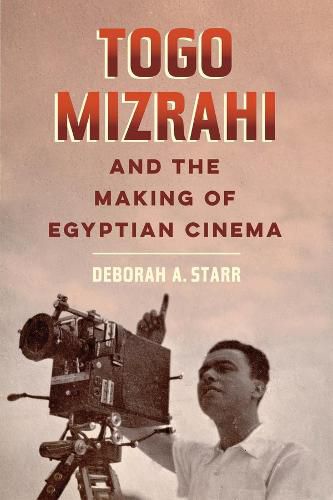Readings Newsletter
Become a Readings Member to make your shopping experience even easier.
Sign in or sign up for free!
You’re not far away from qualifying for FREE standard shipping within Australia
You’ve qualified for FREE standard shipping within Australia
The cart is loading…






A free open access ebook is available upon publication. Learn more at www.luminosoa.org.
In this book, Deborah A. Starr recuperates the work of Togo Mizrahi, a pioneer of Egyptian cinema. Mizrahi, an Egyptian Jew with Italian nationality, established himself as a prolific director of popular comedies and musicals in the 1930s and 1940s. As a studio owner and producer, Mizrahi promoted the idea that developing a local cinema industry was a project of national importance. Togo Mizrahi and the Making of Egyptian Cinema integrates film analysis with film history to tease out the cultural and political implications of Mizrahi’s work. His movies, Starr argues, subvert dominant notions of race, gender, and nationality through their playful-and queer-use of masquerade and mistaken identity. Taken together, Mizrahi’s films offer a hopeful vision of a pluralist Egypt. By reevaluating Mizrahi’s contributions to Egyptian culture, Starr challenges readers to reconsider the debates over who is Egyptian and what constitutes national cinema.
$9.00 standard shipping within Australia
FREE standard shipping within Australia for orders over $100.00
Express & International shipping calculated at checkout
A free open access ebook is available upon publication. Learn more at www.luminosoa.org.
In this book, Deborah A. Starr recuperates the work of Togo Mizrahi, a pioneer of Egyptian cinema. Mizrahi, an Egyptian Jew with Italian nationality, established himself as a prolific director of popular comedies and musicals in the 1930s and 1940s. As a studio owner and producer, Mizrahi promoted the idea that developing a local cinema industry was a project of national importance. Togo Mizrahi and the Making of Egyptian Cinema integrates film analysis with film history to tease out the cultural and political implications of Mizrahi’s work. His movies, Starr argues, subvert dominant notions of race, gender, and nationality through their playful-and queer-use of masquerade and mistaken identity. Taken together, Mizrahi’s films offer a hopeful vision of a pluralist Egypt. By reevaluating Mizrahi’s contributions to Egyptian culture, Starr challenges readers to reconsider the debates over who is Egyptian and what constitutes national cinema.